FACULTY
The Faculty of the Doctoral School Build.Nature consists of 8 Principal Investigators (PIs) and 2 Associated Faculty Members from six Departments of BOKU.
- Department of Civil Engineering and Natural Hazards
- Department of Economics & Social Sciences
- Department of Forest and Soil Sciences
- Department of Material Sciences and Process Engineering
- Department of Nanobiotechnology
- Department of Water, Atmosphere & Environment
Principal Investigators
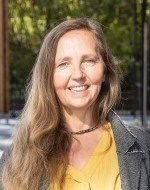
Notburga GIERLINGER is Associate Professor at the Institute of Biophysics at the Department of Natural Sciences and Sustainable Resources. Her research group BIONAMI investigates BIOlogical materials on the NAno- and MIcroscale, with focus on plants. Research projects tackle plant surfaces and interfaces and their hydrophobisation (START-project) or the secrets behind the unique mechanical performance of nutshells in the ERC consolidator grant “Scattering and tapping on soft-hard-open nuts”. The main experimental tools are microspectroscopy (Raman and FT-IR) to reveal chemistry in context with structure and Atomic force microscopy (AFM) to investigate nanostructure, nanochemistry and nanomechanics.
Further information
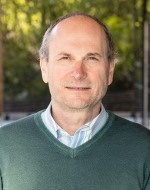
Manfred GRONALT is Professor of Business Economics in Forest Based Industries and Head of the Institute of Production Management and Logistics. His research interests are on advanced production planning methods and simulation based optimizatipon in wood industry and sustainable transport. He has taken a leading role in research projects that aimed at optimizing the operation in wood industry and intermodal transport.

Johannes KONNERTH is Professor for Wood Technology at the Department of Natural Sciences and Sustainable Resources. His main research interest is in resource efficient transformation of wood resources to technical materials. The activities including product, material and process development and engineering. Further specific research interests cover wood adhesive bonding and related technology, wood-based functional materials and fundamental material property relationships.
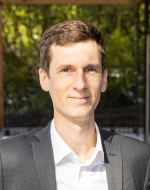
Benjamin KROMOSER is Professor at the Department of Landscape, Water and Infrastructure. His research focuses on minimising the environmental impact in structural engineering. Central research questions are how to minimise the embodied energy by structural optimisation of building parts and structures as well as how to minimise the energy required within use time by thermal optimisation and life cycle-oriented design. Within structural optimisation wood and concrete count as key materials. He has a strong expertise in numerical simulation and experimental investigation on a material and structural level. The accompaniment of the optimisation of production processes as well as the complete process chain by automation play a key role regarding the manufacturing of structural optimised elements as well as their efficient assembly. His research group has access to the newly established robot laboratory hosting a 6-axis articulated robot.
Further information
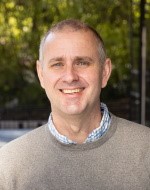
Arne NOTHDURFT is professor for Forest Monitoring at the Department of Ecosystem Management, Climate and Biodiversity. His general interest lies in the monitoring of forest resources. His research applications focus on the spatio-temporal modeling of the structure and the dynamic processes in forest ecosystems. Arne Nothdurft is expert in the automated inventory of timber resources using modern Lidar-based sensor technology. His lab has both terrestrial and portable laser scanning systems (TLS, PLS) to achieve precise measurements of single-tree morphometrics. Beyond this, he is also providing methodology to obtain aggregated estimates on upscaled levels using airborne laser scanning (ALS) data. Further topics of Arne Nothdurft’s research are the statistical climate-sensitive modelling and the prognosis of forest productivity using tree-ring data and dendrometer records. He approaches statistical inference from both the frequentist and the Bayesian perspective.
Further information
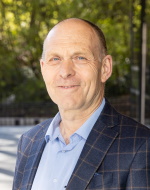
Stefan SALHOFER is Associate Professor at the Department of Economics and Social Sciences. His research analyses products in a life cycle perspective. A focus is set on the end-of-life stage, where take back or collection, pre-treatment (e.g. dismantling) and the final treatment as recycling or disposal of products take place. Beyond treatment options also the extension of the use phase (by re-use, repair) are developed and analysed. Products which have been analysed are electronics, batteries and plastic packaging, as long-term products also buildings and constructions are planned to be analysed.
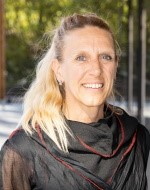
Rosemarie STANGL is Full Professor and Head of the Institute of Soil Bioengineering and Landscape Construction at BOKU Vienna (University of Natural Resources and Life Sciences). Her academic work centers on the design and performance of nature-based solutions and green infrastructure. Detailed technical planning and design for using plants and plant based and natural material for construction and engineering purposes have been advanced as core competences. Related research focuses the use of resource saving techniques and renewable resources and their combination with traditional and novel vegetation technologies and soil bioengineering techniques. In her previous positions, Prof. Stangl focused on resilience related topics and was centrally involved in preparing the national FTI-Bioeconomy Strategy.
Further information
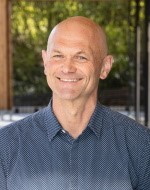
Rupert WIMMER is Full Professor for Natural Materials Technology at the Department of Natural Sciences and Sustainable Resources. He has worked years at the Oak Ridge National Laboratory, USA, and at the Commonwealth Scientific and Industrial Research Organization (CSIRO), Australia. He also was employed as a R&D manager at Fundermax Industries, Austria, and held formerly professor positions at Goettingen University, Germany, and also at the Mendel University, Brno, Czech Republic. He is very active internationally, with leading roles such as for the International Society of Wood Science and Technology (President in 2021/2022). His broad interests range from zero-waste material concepts, cradle-to-cradle product design, processing technologies for bio-based building materials, wood-based composite design and manufacturing, to applied wood quality issues that are relevant in engineering applications.
Further information
Associated Faculty Members
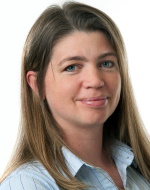
Nina EISENMENGER is Associate Professor for Industrial Ecology at the Institute of Social Ecology, BOKU Vienna. Her research focus is on social metabolism and sustainable resource use and the understanding of current environmental problems such as climate change, resource scarcity, and unequal trade, as a result of our biophysical society-nature interactions. She studied patterns and trends in resource use, underlying socioeconomic drivers, and synergies and trade-offs between resource efficiency and decarbonisation or biodiversity. Nina Eisenmenger participated in the international activities on the development of methods and indictors of material flow accounts (MFA), compilation of Eurostat and UN datasets. Nina Eisenmenger consulted the Austrian ministries, the European Commission, the OECD, and the International resource Panel in designing policy programmes on resource efficiency/productivity, dematerialisation, and circular economy.
Further information
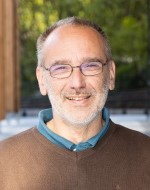
Michael GRABNER is Senior scientist at the Department of Natural Sciences and Sustainable Resources. His main research interest is dendrochronology, wood utilization and wood quality. The main goal is to link these different scientific fields - learning from (pre)historical examples to find new and modern applications. One example is to use crooked or bent trees for architectural purposes – which can be found in historical buildings and are discussed for modern applications which need a valid description of the wood quality. Dendrochronolgy enables us to look back in time and to solve future problems like sustainable forestry or strategies to mitigate climate change.
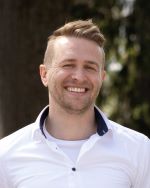
Matthias NEUNER is Professor of Computational Mechanics of Materials at the Institute of Structural Engineering at the Department of Landscape, Water and Infrastructure. His research activities focus on the prediction of the behavior of construction materials in civil engineering using advanced computational methods. The realistic modeling of the behavior of materials is of paramount importance, as it facilitates the development of new materials, a better understanding of the complex interaction between material and structural behavior, the assessment and optimization of the safety of existing and future systems and components, and accordingly, it helps to increase sustainability.

Klaus VOIT is Associate Professor at the Institute of Applied Geology in the Department of Landscape, Water, and Infrastructure. His research and teaching focus on engineering geological challenges in construction and infrastructure projects. His current focus is on the optimal use and conservation of geo-resources, increasing the environmental compatibility of construction materials, the geo-resource geothermal energy, as well as classic engineering geological topics such as slope stability and landslides.
